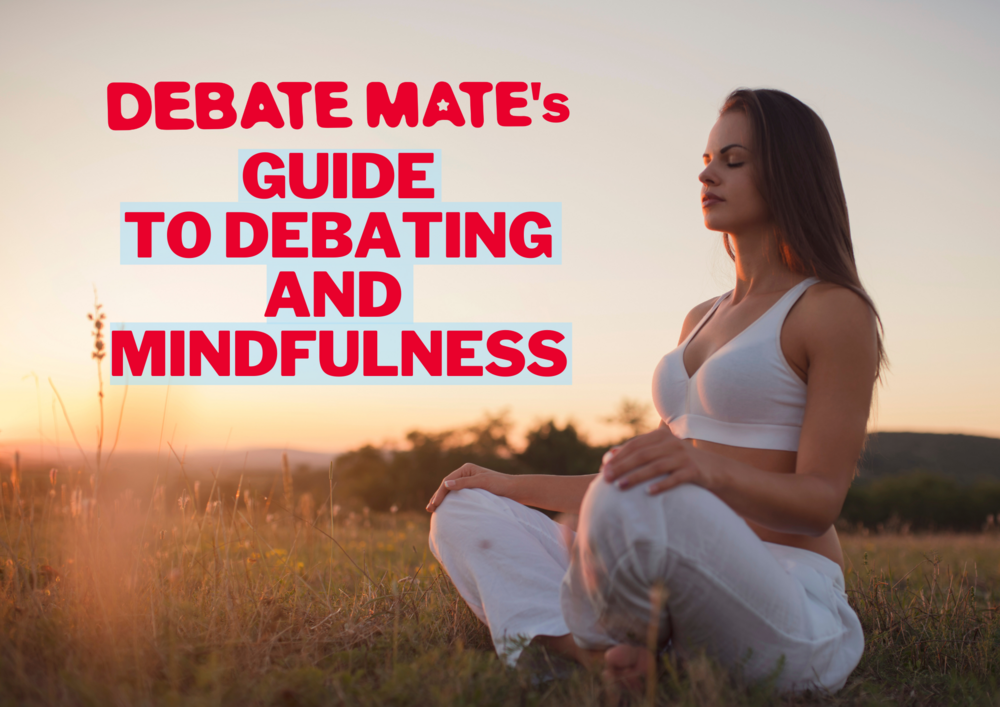To succeed in the 21st century, young people need so much more than critical thinking and communication skills. In the fast-paced, high-intensity world we live in, mindfulness and resilience are more important than ever. Read on to see how debating links to mindfulness...
What is mindfulness?
According to mental health charity Mind, mindfulness is...
"a technique you can learn which involves noticing what's happening in the present moment, without judgement. You might take notice and be aware of your mind, body or surroundings."
It aims to help you....
- become more self-aware
- feel calmer and less stressed
- feel more able to choose how to respond to your thoughts and feelings
- cope with difficult or unhelpful thoughts
- be kinder towards yourself
Regularly practicing mindfulness can help your child become more resilient and better able to deal with every-day stresses and difficult times in their life.
How does mindfulness link to debating?
The fast-paced nature of debating means that it inherently requires participants to be present and actively engaged in what's happening.
Mindful moment:
At Debate Mate, one way we help promote mindfulness through our curriculums is by encouraging students to take a 'mindful moment' before speaking in a debate.
A mindful moment involves...
- focusing on taking a slow, deep breath
- grounding and re-centring yourself
- being aware of your body and how you're moving
- slowing down your heart rate and breathing
Without this mindful moment, speakers might find themselves speaking too fast, tripping over their words, fidgeting, using filler words and forgetting their speech. This is a natural response to stress and anxiety- a mindful moment helps students calm down, be present and relax.
As a result, students will find themselves performing better under stress, responding more calmly to difficult situations and feeling more confident in their abilities.
Points of Information and Rebuttal:
During debates, students are encouraged to engage with and respond to the speeches of their peers.
This can take two main forms:
-
Rebuttal- a response to the argument of the preceding speaker, delivered at the beginning of a speech.
-
Point of Information- a brief interjection into the speech of the other side to challenge their argument, usually posed as a question
Both of these responses require students to be engaged with the speeches of their peers at all times. We call this active listening.
Active listening involves...
- making a conscious effort to not only hear the words that someone is saying, but understand the meaning of what they're communicating.
- not just passively receiving information but actively processing it
- making notes and formulating responses to what you hear
Active listening requires students to be present and mindful of what's going on around them.
Mindfulness tips:
Debating is just one way that you can practice mindfulness.
Students can use the skills they develop through our curriculums and apply it to other areas of their life.
This can include...
-
Mindful eating
- Paying attention to the taste, sight and textures of the food you're eating
- Actively enjoying the food you're eating rather than just eating for the sake of it
-
Mindful exercising
- Focusing on the feeling of your body when it's in motion
- Focus on the sensations you feel- the wind rushing over your skin and your heart beating faster
-
Mindful colouring
- being creative is a great way to practice mindfulness
- using colouring books has been proven as a great way to ground yourself and be present
- Download printable colouring pages for your child, here!
-
Mindful meditation
- much like our mindful moment in debating
- sit with yourself and your thoughts, focussing on remaining present and being aware of your body
- some people choose to practice this through yoga or meditation podcasts
If you're interested in developing mindfulness skills in your child through debating, click
here to check out the courses we offer!
